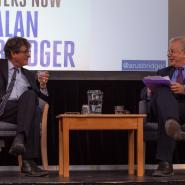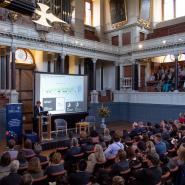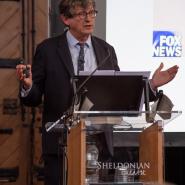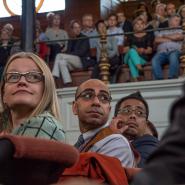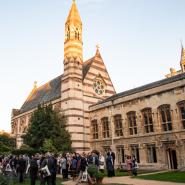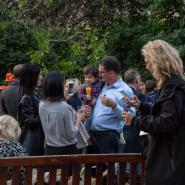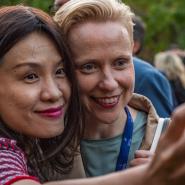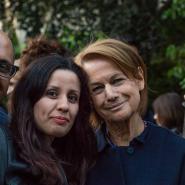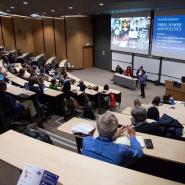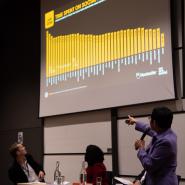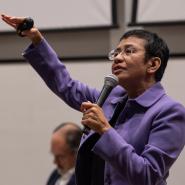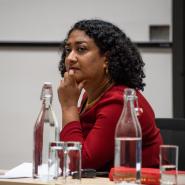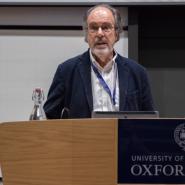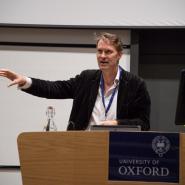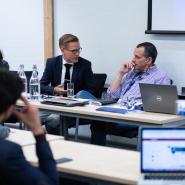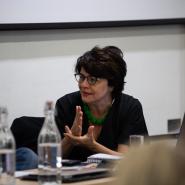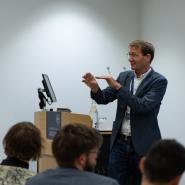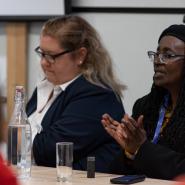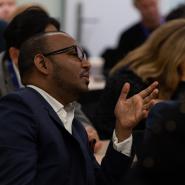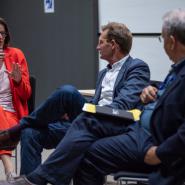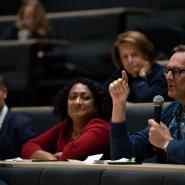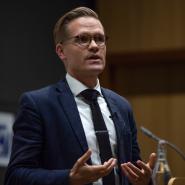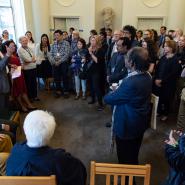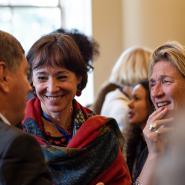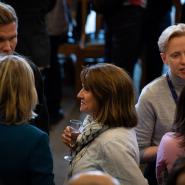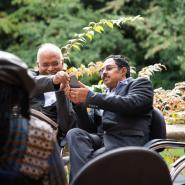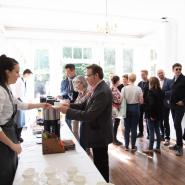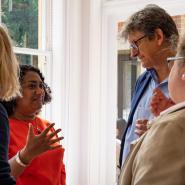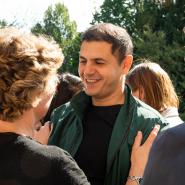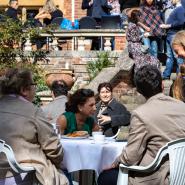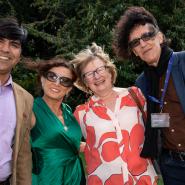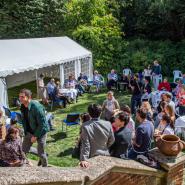A weekend of collaboration, discussion and friendship
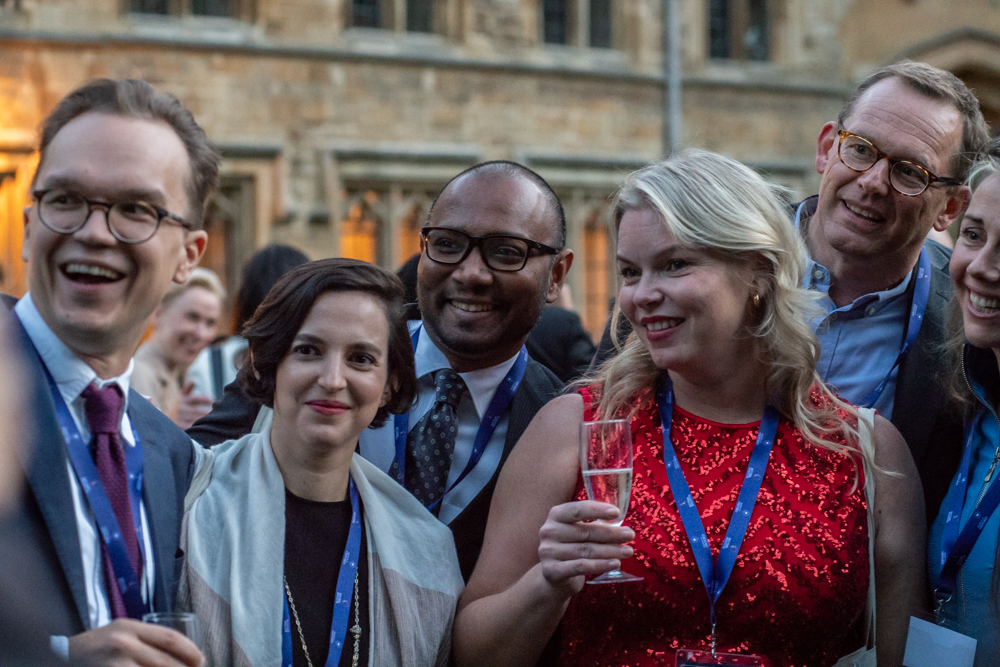
Almost 200 journalist fellows, speakers and guests attended a weekend of events across Oxford in September, marking the 35th anniversary of the Reuters Institute’s Journalism Fellowship Programme.
The celebration began with an insightful and provoking keynote lecture by Alan Rusbridger, based on his recently published book, Breaking News: The Remaking of Journalism and Why it Matters Now. Rusbridger’s talk drew on his 20 years editing the Guardian, years which, he said, “precisely coincided with the seismic change that impacted on just about everybody in journalism with something like the force of an asteroid.”
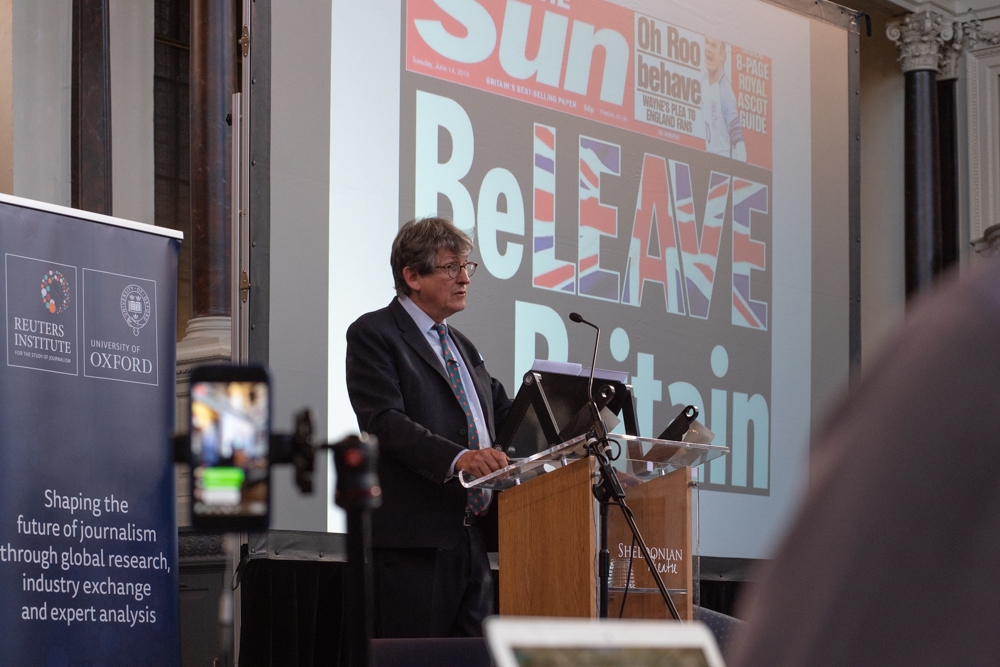
Rusbridger’s talk covered the dramatic changes affecting the profession, including the rapid rise of social media, tech giants, and the challenge of populist politicians. He described how many leading UK newspapers had influenced the Brexit debate in favour of leaving the European Union, through narrow reporting, opinion and a focus on personalities, rather than facts. The pro-Brexit press coverage of the issue, complete with incendiary front pages such as the Sun’s ‘Great Britain, Great Betrayal’ and the Daily Mail’s ‘Crush the Saboteurs’ had been used, he said, as a way “to shape public opinion, and political and judicial opinion to their view.”
He talked about the similar mistreatment by much of the media of climate change – “by any reasonable standard the most important story of our time.” This is an issue that is usually neglected apart from when, he said, precious space is given over to those who deny the science behind it.
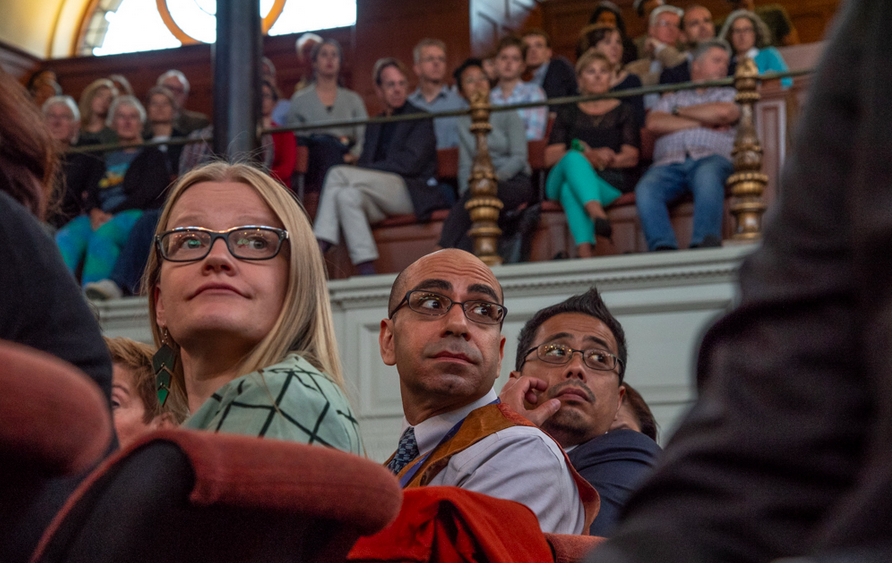
Rusbridger described the challenge of finding a sustainable funding model for the Guardian, and how the decision not to put up a paywall for its online content - instead asking readers to support it through donations - is finally paying off. He considered whether the government could recognise quality news outlets as having a “public benefit” similar to social enterprises and hoped that the Cairncross review would come up with similarly imaginative solutions to how governments can help sustain quality journalism, in the face of such numerous challenges.

The following day, inspirational speakers from around the world gave their views on some of the most pressing issues facing journalists today. Maria Ressa, CEO of news site Rappler.com, outlined the Philippine government’s crackdown on journalists - herself and her colleagues included. She described the Philippines as being in the midst of a misinformation war, conducted through social media – and often led by the government itself. The public is no longer manipulated through censorship, she argued, instead they are being 'pounded with misinformation'.
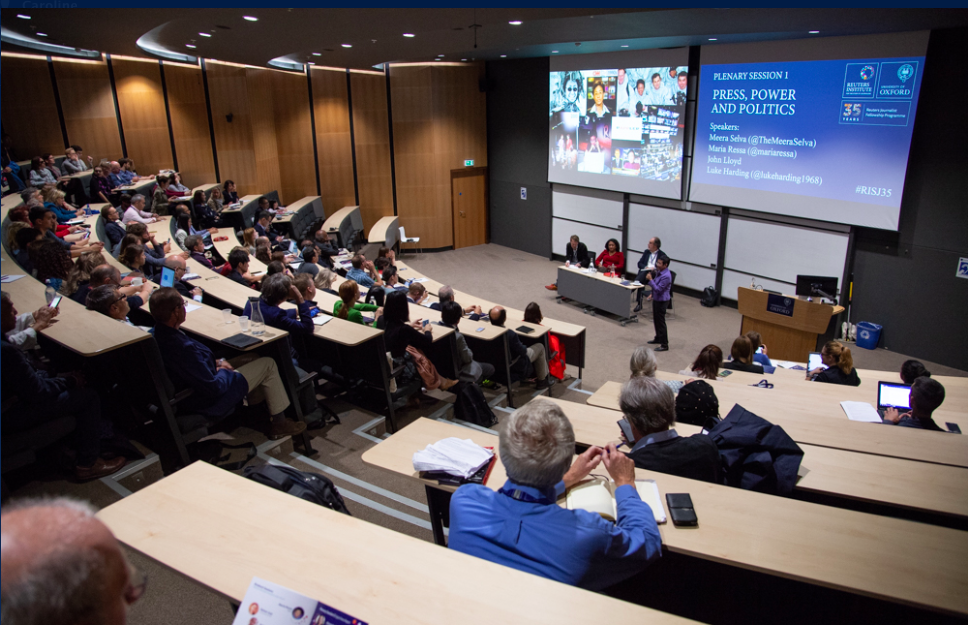
Ressa spoke about the intensity of hate she has faced following the publication of certain articles critical of the government. Attacks usually consist of questioning journalists’ credibility, alleging corruption, inflaming biases and fuelling misogyny: “Presstitute” is a derogatory term often used against her.
Co-founder of the Reuters Institute John Lloyd described the misinformation landscape worldwide, and how small freedoms for journalists have been rolled back in China, Turkey, India, and – since the election of Donald Trump – the United States.
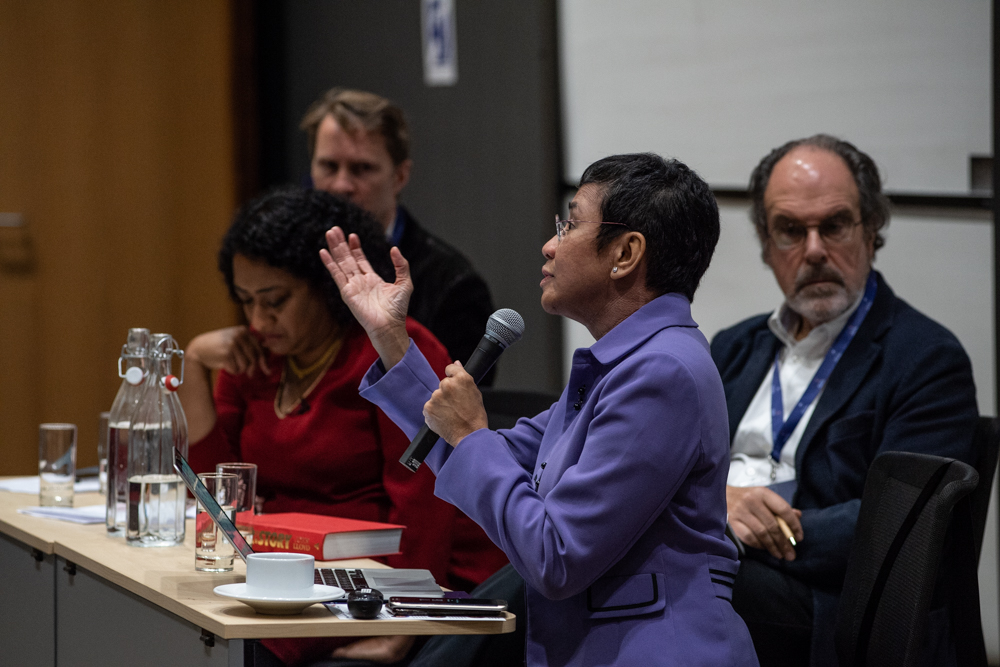
Luke Harding, a Reuters Institute alumnus and a Guardian journalist known for his investigations into Russian politics, further emphasised the challenges journalism faces. He said “journalists are at the forefront of our age to figure out what’s going on”. He described attempts to misinform the public as “a bold attempt to sovereignise reality.” The objective of this move, he said, is to create a situation where “people believe there is no truth” and no agreed space for journalism, politics and science to be discussed.
Both Harding and Ressa had words of optimism and believed that coming together as a community of journalists – crowdfunding has paid for much of Rappler’s legal costs – is one way that the sector can exist in such a challenging environment.
A series of breakout sessions throughout the day looked at more of these challenges, and ways that journalists could overcome them. Bahaar Joya and Kemal Göktaş described the threats to life and liberty faced by journalists, including their own experiences, in Afghanistan and Turkey, respectively, in a session entitled ‘Killing the Messenger’.

Cornelia Fuchs of Stern magazine, in a discussion on ‘Media and Elections’ talked about how the main agenda in the run-up to Germany’s 2017 general election became integration and refugees, when there were far more pressing issues that needed covering. She said the growing role that social media has played, particularly in the east of Germany, where national news titles have a low readership, has led to the spread of inflammatory misinformation and anti-immigrant riots. The spread of misinformation via WhatsApp in Brazil was also highlighted by Maria Esperidiao.
A discussion on collaboration explored the various ways in which journalists could support one another through such trying times, while another looked at the increasing role that artificial intelligence, aggregating news sites and platforms have had, and will continue to have, on the profession in the future.
A gathering of such talents and friends would be worthless without plenty of opportunities to socialise with one another. Dinner at Balliol College, afternoon tea at Green Templeton College and a brunch at the Reuters Institute itself allowed guests to network and relive some of their good times spent in Oxford, some as far back as 1983.
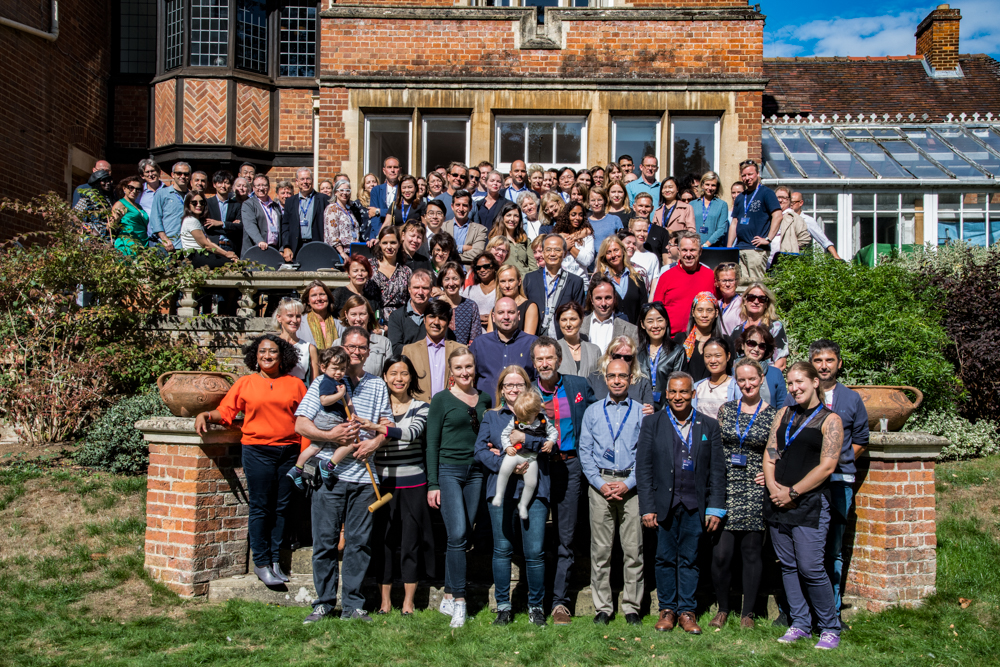
Images c. Julia Massey Stewart


